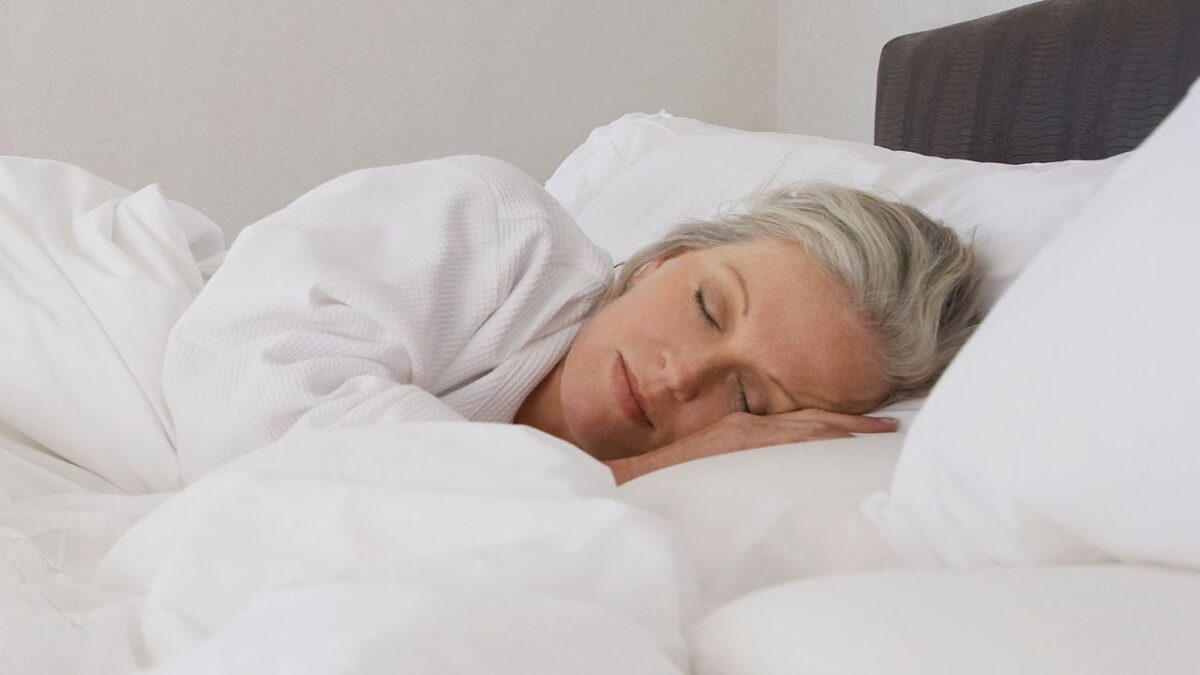How to Conquer Sleep Challenges and Wake Up Refreshed

As menopause approaches, it’s not uncommon to find yourself struggling to get a good night’s sleep. Whether it’s waking up drenched in sweat, tossing and turning with restless legs, or just not feeling rested when the alarm goes off, sleep disturbances can become a frustrating part of this transition. But here’s the good news: while menopause might shake things up, it doesn’t mean your sleep has to suffer endlessly. With a little know-how and some smart strategies, you can tackle these sleep issues head-on. From understanding what’s causing the disturbances to discovering practical solutions that fit your lifestyle, you can reclaim your nights and start waking up refreshed and ready to take on the day. So, let’s dive into how to manage those pesky menopause-related sleep problems and get back to enjoying the restful sleep you deserve.
The Sleep Struggle is Real: Why Menopause Messes with Your Sleep
Hormonal Rollercoaster
As menopause approaches, your body starts to undergo significant hormonal shifts. The levels of estrogen and progesterone—the hormones that have been your body’s balancing act for years—start to drop, while the follicle-stimulating hormone (FSH) levels rise. This hormonal upheaval can wreak havoc on your sleep quality, making it harder to fall asleep, stay asleep, or even feel rested.
The Melatonin Mystery
You might not realize it, but melatonin—the hormone that regulates your sleep-wake cycle—also gets in on the action. As menopause nears, your body produces less melatonin, making sleep disturbances more common. If you’ve been wondering why your once-peaceful nights have turned into restless ones, this is a big part of the reason.
Common Sleep Woes
With all these changes going on, it’s no wonder that sleep issues become more frequent during menopause. Night sweats, restless leg syndrome, mood swings, and even parasomnias (those pesky sleep disorders) are all common complaints. Menopause can also increase the risk of obstructive sleep apnea (OSA), a condition where your breathing repeatedly stops and starts during sleep, often leading to poor sleep quality and daytime fatigue.
Solutions for Night Sweats: Cool Down and Rest Easy
High-Tech Cooling
If night sweats are soaking through your sheets and keeping you awake, it’s time to bring in some cooling technology. Cooling pads that fit under your bed sheets are a game-changer. These pads circulate cool water throughout the night, keeping your body temperature down and helping you sleep more comfortably. Many women swear by them as a must-have for managing those nightly heat waves.
DIY Chill
Prefer a more budget-friendly approach? Try freezing water bottles and placing them in a tube sock. Pop them into bed with you to cool your body down as you sleep. It’s a simple, effective way to beat the heat without breaking the bank.
Sleep Environment Essentials
Don’t underestimate the power of your sleep environment. Opt for thin, breathable sheets that wick away moisture, and keep a set of spare clothes nearby for a quick change if you wake up drenched. A cool, comfortable bedroom can make a world of difference in how well you sleep.
Tackling Obstructive Sleep Apnea (OSA): Breathe Easier, Sleep Better
Know the Signs
Obstructive Sleep Apnea (OSA) is more common during menopause than you might think. If you’ve noticed symptoms like snoring, gasping, or choking during sleep, it’s worth talking to your doctor. They may recommend a sleep study, either at home or in a lab, to get to the bottom of your symptoms.
Treatment Options
If OSA is diagnosed, one of the most common treatments is a CPAP machine, which provides a steady stream of air to keep your airways open during sleep. For some women, hormone replacement therapy (HRT) can also help by addressing the underlying hormonal changes contributing to sleep disturbances, including OSA.
Explore Alternative Therapies: Find What Works for You
Beyond the Traditional
Sometimes, the best approach is a combination of traditional and alternative therapies. Hypnotherapy, acupuncture, cognitive behavioral therapy (CBT), and meditation have all shown promise in helping women manage menopause symptoms and improve sleep quality. These methods can help you relax, reduce stress, and get into a sleep-friendly state of mind.
Sleep Hygiene Matters
Good sleep hygiene is essential, especially when your body is going through so many changes. Keep a consistent sleep schedule, develop a relaxing pre-sleep routine, and avoid late-day caffeine, alcohol, or heavy meals. These small habits can make a big difference in how easily you fall asleep and how well you stay asleep.
Lifestyle Tweaks: Small Changes, Big Impact
Exercise Smart
Regular physical activity is a fantastic way to improve sleep quality and overall well-being. Just make sure to time your workouts wisely—exercise too close to bedtime can actually make it harder to wind down.
Doctor’s Orders
Finally, don’t hesitate to seek medical advice if sleep problems persist. Your doctor can help tailor lifestyle changes and treatments to your specific needs, making restful sleep during menopause more achievable than ever.
Sleep Soundly Through Menopause
Menopause may come with its fair share of challenges, but with the right strategies, you can reclaim your nights and wake up feeling refreshed and ready to take on the day. By understanding the changes happening in your body and adopting a few simple habits, you can navigate this transition with grace—and a good night’s sleep.
